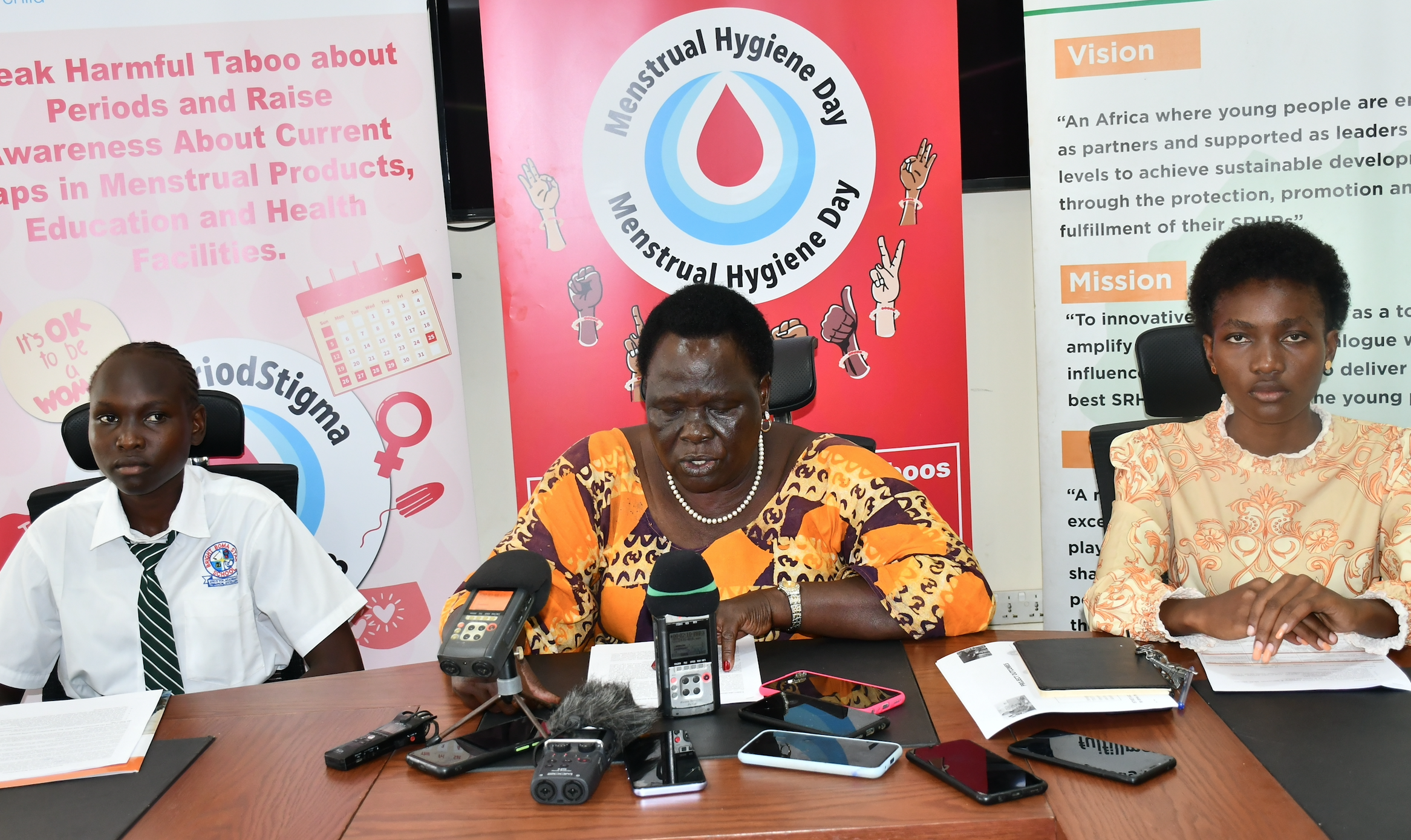
South Sudan commemorate the Menstrual Hygiene Day in Juba, Thursday with concern raised over hiking prices of sanitary pads school girls couldn’t afford to purchase regularly.
The Menstrual Hygiene Day is commemorated on 25th May annually. It was organized by UNICEF, UNFPA, AfriYan in collaboration with the Ministry of General Education.
The day was commemorated under the theme “Making Menstruation a normal fact of life by 2030.” South Sudan Coalition on menstrual health management call on the government, partners, and communities to break the taboo revolving around menstruation.
The coalition urges stakeholders to take concrete actions to ensure discriminatory mindsets about menstruation are change
Such harmful sociocultural norms, stigma, misconceptions, and taboos around menstruation continue to exclude and discriminate against women and girls.
The stigma and shame generated by stereotypes around menstruation have negatively impacted women and girls in all aspects including their rights to equality, health, water and sanitation, education, work, freedom of religion, and belief.
According to Amok Maker Kacbai, a senior student at Bright Boma Academy, girls are experiencing hardships in accessing affordable sanitary pads due to high prices.
Amok says the rise in the prices of sanitary materials has made many school-going girls miss classes and also failed to manage their menstruation.
She says the economic hardships made many menstruating girls to resorting to the use of unhygienic sanitary products for collecting period blood that causes infections.
The maker explained that there is limited provision of sanitary pads without proper washrooms to clean themselves whenever they are menstruating.
Kacbai added that many schools do not have proper facilities to dispose of the used pads leaving the environment polluted and all the blames are put on the girls.
According to her, many young girls got unintended pregnancies due to a lack of information on menstruation which most parents and schools do not give the girls
Amok said many girls have been pulled out of school after seeing their first menstruation and are forced into child marriages due to cultural perception that ‘menstruation’ means marriage.
These cultural norms have increased the rates of mortality among teenage girls when giving birth since their bodies are not fully developed for child delivery hence causing many girls to suffer from fistula.
Maker urges the government and the stakeholders to increase the distribution of free sanitary pads and train young girls on Menstruation Health Management.
In her part, the Director General of Gender Equity, and Inclusive Education at the Ministry of General Education, Esther Akumu Achire says unlimited resources will be made available.
Akumu says this will put to end the poverty period, improving livelihood, increasing school retention, and promoting proper menstrual health.
She urges the lawmakers to incorporate Menstrual Health Management into the constitution and other legal laws and frameworks of the country.
Esther suggested that the partners should integrate menstrual Health into their programs including climate change, humanitarian responses, mental health intervention, and livelihood projects among others.
According to Esther, menstruation is not a ‘standalone’ matter because it can affect productivity in any sector
